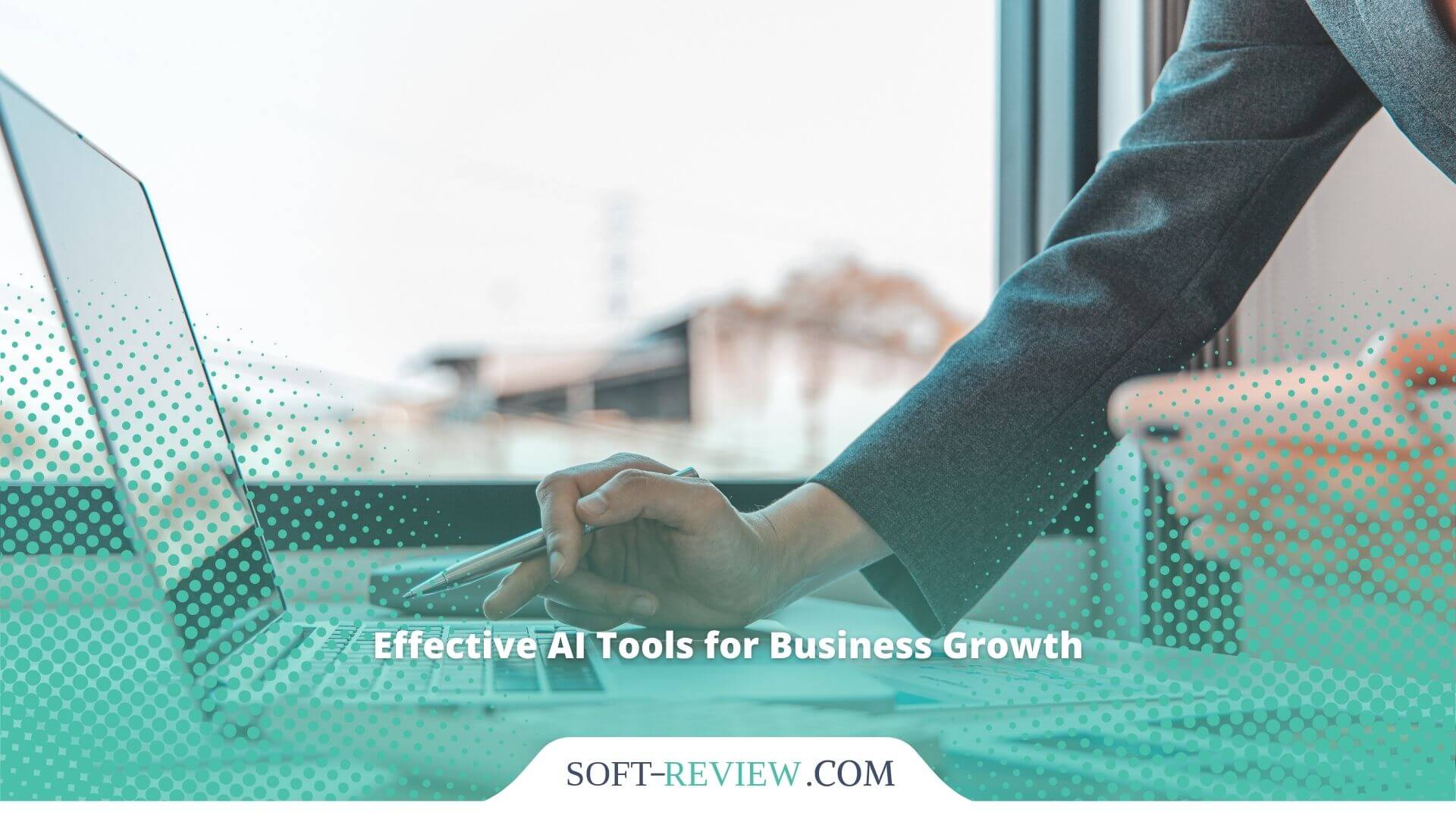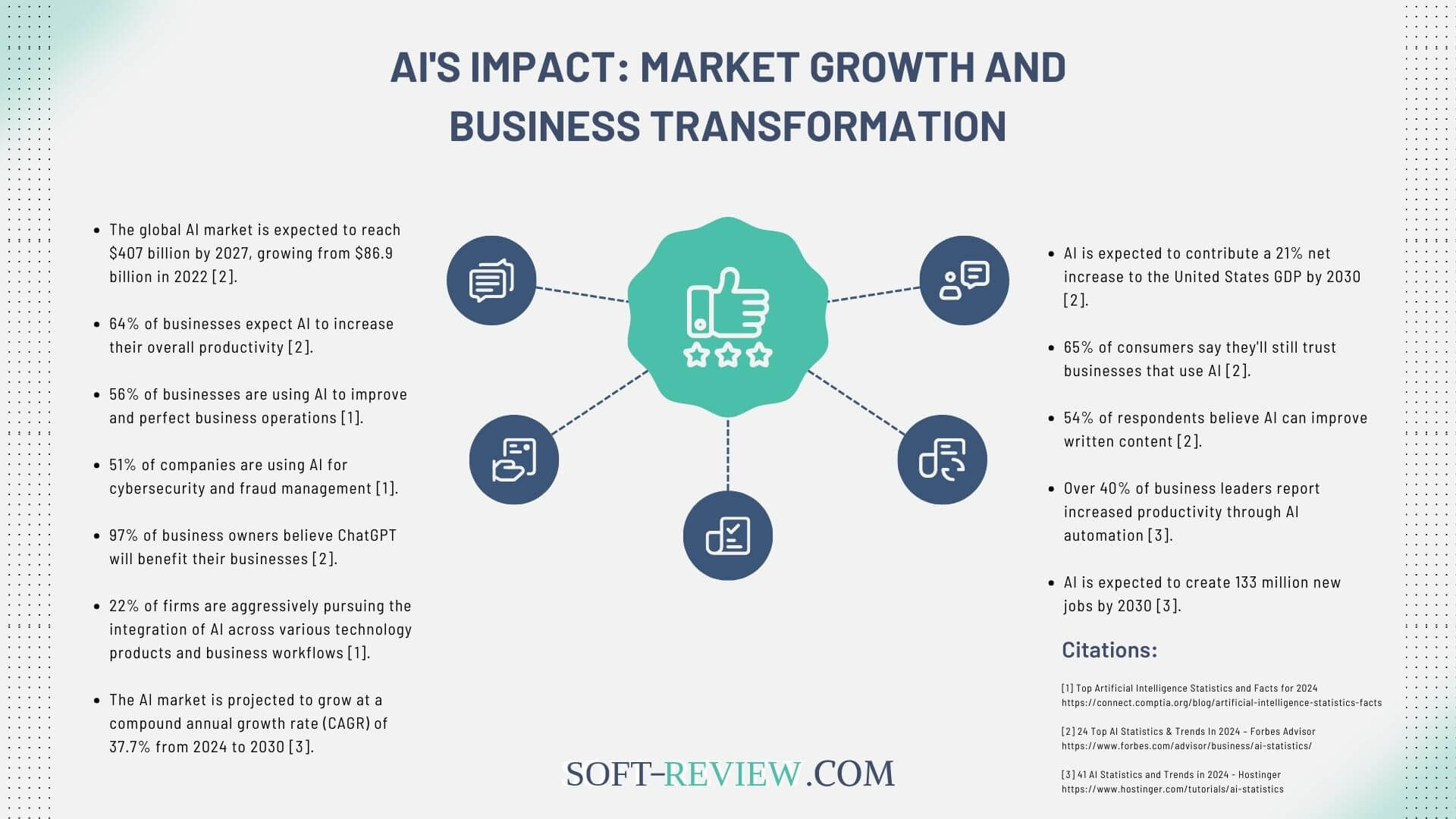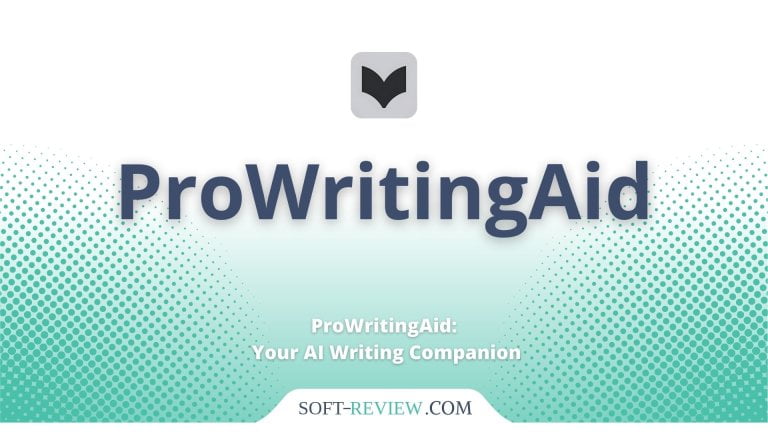<!-- wp:social-links --><ul class="wp-block-social-links"><!-- wp:social-link {"url":"https://gravatar.com/wwwsoftreviewcom","service":"gravatar","rel":"me"} /--></ul><!-- /wp:social-links -->

Effective AI Tools for Business Growth
Table of Contents
Effective AI tools are essential for business growth, streamlining operations, enhancing productivity, and improving customer satisfaction. Vital technologies like machine learning, natural language processing, and computer vision enable quick and accurate data processing and automation of routine tasks. Tools such as Jasper and Scalenut aid in content creation, improving digital presence, while AI-driven chatbots boost customer service efficiency. Productivity enhancers, including Zapier and Grammarly, optimize workflows, reducing human error and freeing up resources for strategic activities. Selecting the right AI tools involves evaluating business needs, integration capabilities, and potential ROI, leading to sustained growth and competitive advantage. Discover more insights by exploring further.
Overview of AI in Business
Artificial Intelligence (AI) technologies have become integral to modern business operations, offering substantial benefits such as enhanced efficiency and data-driven decision-making. By automating routine tasks and providing advanced analytical capabilities, AI tools enable businesses to optimize their workflows and deliver personalized customer experiences. The rise of AI technologies is transforming industries, making it essential for companies to adopt these tools to maintain a competitive edge.
The Rise of AI Technologies
In recent years, the rapid advancement of AI technologies has revolutionized business operations across various sectors. AI tools such as machine learning, natural language processing, and computer vision have become integral in optimizing business functions. These technologies enable businesses to process large volumes of data quickly and accurately, driving informed decision-making and fostering innovation.
The adoption of AI has doubled since 2017, underscoring its growing significance in the business landscape. AI technologies are now essential for enhancing productivity, streamlining operations, and creating value. For instance, machine learning algorithms can analyze customer behavior patterns, allowing businesses to tailor marketing strategies effectively. Similarly, natural language processing assists in improving customer service through AI-powered chatbots that handle inquiries around the clock.
Additionally, computer vision technologies help in quality control and automation in manufacturing, reducing errors and improving efficiency. The integration of AI in cybersecurity also allows for real-time threat detection, safeguarding digital assets. As AI tools continue to evolve, their applications will expand further, offering businesses new opportunities to innovate and stay competitive. Understanding and leveraging these technologies is vital for businesses aiming to thrive in an increasingly digital and competitive market.

Benefits of AI in Business Operations
Leveraging AI in business operations considerably enhances productivity and operational efficiency by automating repetitive tasks and providing advanced data analysis capabilities. By integrating AI technologies, businesses can considerably reduce human error, streamline workflows, and free up employees to focus on more strategic and creative roles. AI-driven automation handles routine tasks such as data entry, scheduling, and customer support, ensuring these processes are completed quickly and accurately.
Moreover, AI tools offer powerful data analysis capabilities that enable businesses to make more informed decisions. By processing vast amounts of data, AI can uncover patterns and insights that would be difficult for humans to detect. This data-driven approach not only improves decision-making but also helps in identifying new business opportunities and optimizing existing operations.
AI also enhances customer experiences through personalized interactions. AI-powered chatbots and recommendation systems can provide instant support and tailored suggestions, increasing customer satisfaction and loyalty. Additionally, AI’s predictive maintenance capabilities can reduce operational downtime and costs by identifying potential issues before they become critical.
Top AI Tools for Business
To harness the full potential of AI in business, it is essential to explore top tools designed for content creation, customer service, and productivity enhancement. These tools not only streamline operations but also provide opportunities for innovation and improved customer engagement. By integrating AI-driven solutions, businesses can achieve greater efficiency and maintain a competitive edge in their respective markets.
Content Creation Tools
Harnessing the power of AI for content creation can revolutionize the way businesses produce high-quality, engaging material with outstanding efficiency. AI tools such as Jasper, Hubspot, and Scalenut streamline the process of writing, editing, and brainstorming, greatly reducing the time and effort required for content production. These tools enable businesses to maintain a consistent content output, enhancing their digital presence and audience engagement.
| Tool | Primary Function | Key Features |
|---|---|---|
| Jasper | AI writing assistant | Automated writing, editing, and brainstorming |
| Hubspot | Content management and automation | SEO optimization, content analytics |
| Scalenut | AI-powered content creation | Topic research, content planning, and generation |
Jasper provides automated writing and editing capabilities, enabling the creation of various content types, from blog posts to marketing copy. Hubspot, another powerful tool, offers extensive content management and automation features, including SEO optimization and detailed content analytics. Scalenut specializes in AI-powered content creation, assisting businesses with topic research, content planning, and generation.
Customer Service AI
Building on the transformative impact of AI in content creation, businesses are also increasingly turning to AI-powered customer service tools to enhance their support operations and deliver superior customer experiences. These tools, including chatbots and automated ticketing systems, offer substantial benefits by providing instant assistance, reducing handling times, and guaranteeing personalized interactions. By leveraging AI, companies can address customer inquiries more efficiently, freeing human agents to focus on complex issues that require a personal touch.
One notable AI tool in customer service is the chatbot, which uses natural language processing (NLP) to understand and respond to customer queries in real-time. Chatbots can handle a wide array of tasks, from answering frequently asked questions to guiding users through troubleshooting processes. This not only improves response times but also guarantees consistent service quality.
Another essential tool is the automated ticketing system, which categorizes and assigns customer issues to the appropriate departments or agents. This streamlines the resolution process and minimizes the risk of human error. Additionally, AI-driven analytics can provide insights into customer behavior and preferences, enabling businesses to tailor their services and improve overall satisfaction.
Productivity Enhancers
Integrating AI productivity tools into business operations can greatly enhance efficiency by automating routine tasks and optimizing workflows. Tools like Zapier, Notion AI, and Grammarly offer notable benefits that streamline daily tasks and improve organizational productivity.
Zapier excels in automating workflows by connecting various apps and services, allowing businesses to create automated processes without coding. This tool is particularly valuable for integrating disparate systems, reducing manual data entry, and guaranteeing seamless operations across platforms.
Notion AI enhances task management and note-taking by providing features such as text autocompletion, idea generation, and to-do list creation. Its ability to extract actionable points from meeting notes guarantees that critical information is not overlooked, fostering better decision-making and project management.
Grammarly, an AI-powered writing assistant, considerably improves communication by offering real-time grammar and style suggestions. This tool helps maintain professional standards in written communication, guaranteeing clarity and reducing errors in documents, emails, and reports.
How to Choose the Right AI Tools
Selecting the right AI tools begins with a thorough assessment of your business needs, identifying areas where AI can provide the most significant impact. It is important to evaluate the effectiveness and compatibility of potential tools, ensuring they align with your operational requirements and strategic goals. Consider factors such as scalability, ease of integration, and support services to make an informed decision that will drive business growth.
Assessing Business Needs
Understanding a business’s unique challenges and objectives is vital in selecting the most effective AI tools to drive growth and efficiency. First, businesses should conduct a thorough assessment of their current operations, identifying specific pain points and areas where AI can provide significant value. For instance, if customer service is a major concern, AI-powered chatbots or virtual assistants might be beneficial. Conversely, if the goal is to enhance data analysis capabilities, advanced analytics tools leveraging machine learning algorithms could be more suitable.
Next, it is important to set clear, measurable objectives for AI implementation. Objectives might include reducing operational costs, improving customer satisfaction, or increasing productivity. By defining these goals upfront, businesses can better evaluate which AI tools align with their strategic priorities.
Additionally, companies should consider the scalability and integration capabilities of potential AI tools. Confirming that the chosen tools can seamlessly integrate with existing systems and scale alongside business growth is essential for long-term success. Finally, involving key stakeholders in the decision-making process can provide diverse perspectives and guarantee that the selected AI tools meet the needs of various departments within the organization. This detailed approach will help in choosing AI tools that truly drive business growth and efficiency.
Evaluating Tool Effectiveness
After thoroughly evaluating business needs, it’s important to apply robust criteria to gauge the effectiveness of potential AI tools to guarantee they align with strategic objectives and deliver measurable value. One primary consideration is the return on investment (ROI). Assess how the tool will enhance productivity, reduce costs, or generate new revenue streams. Integration capabilities are also essential; the chosen AI tool must seamlessly integrate with existing systems to avoid disruptions.
Ease of use is another critical factor. A user-friendly interface can greatly reduce the learning curve, ensuring quick adoption across the organization. Scalability is equally important, as the tool should be able to grow with the business, accommodating increasing data volumes and user numbers.
Additionally, evaluate the total cost of ownership (TCO), which includes initial purchase, implementation, and ongoing maintenance costs. Understanding the time to value (TTV) is fundamental, as it indicates how quickly the tool can start delivering benefits.
Conclusion
To summarize, the integration of AI tools in business operations is imperative for driving growth and maintaining competitiveness. By automating routine tasks, enhancing decision-making, and offering advanced data analysis, AI technologies provide substantial benefits, including increased efficiency and personalized customer experiences. Business leaders must strategically adopt AI tools, ensuring they align with specific business needs and effectively contribute to workflow optimization and data-driven decision-making, thereby positioning their enterprises at the forefront of the digital transformation.






